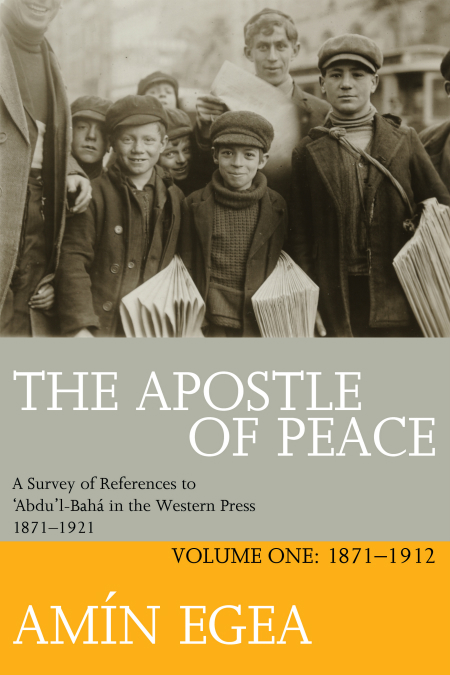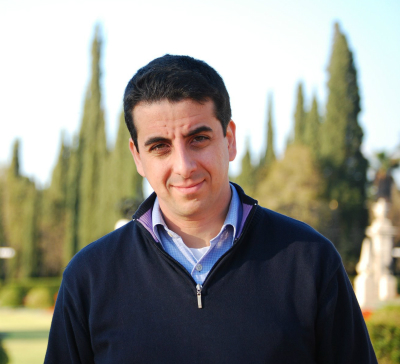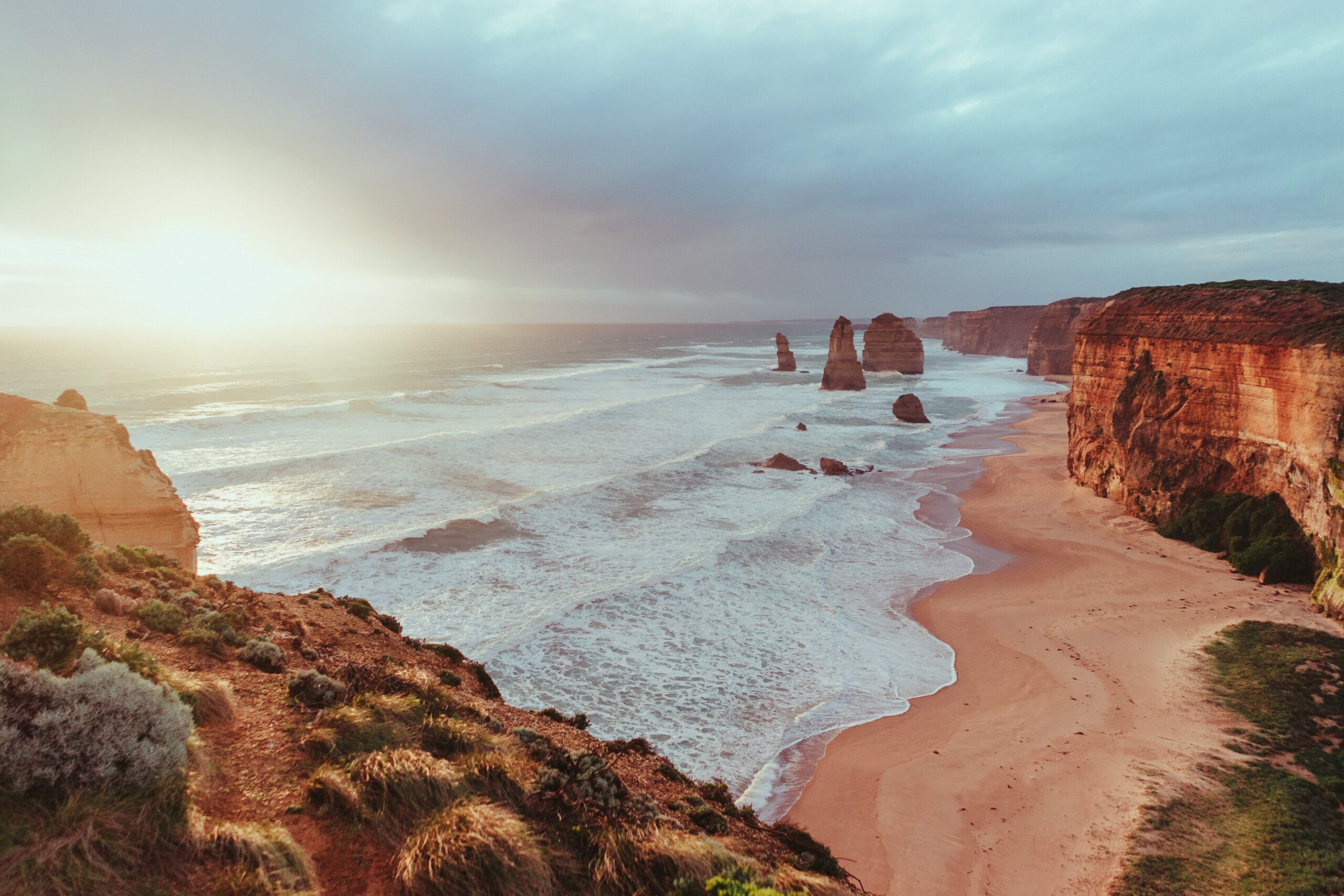Highlighting Australia
- As a proudly Australian initiative, we’re excited to showcase a collection of Australian stories, music, tributes and more.

Join activities, celebrations, study groups, spiritual empowerment and education programs for young people, and more.
Baha’i beliefs address essential spiritual themes for humanity’s collective and individual advancement. Learn more about these and more.

Featured in: Abdu'l-Baha
Abdu’l-Baha—the eldest Son of Baha’u’llah—was the Baha’i Faith’s leading exponent, renowned as a champion of social justice and an ambassador for international peace.

George Ronald has recently released the first in a fascinating historical two-volume set by Amin Egea. It’s called The Apostle of Peace: A Survey of References to Abdu’l-Baha in the Western Press, 1871-1921 and it offers a comprehensive look at the news headlines and press articles featuring Abdu’l-Baha. The first volume, which has been printed and is now available for purchase here on Amazon, covers the years 1871-1912 and ends with Abdu’l-Baha’s return to Europe after His travels in North America.
It is difficult to imagine what it would have been like to see Abdu’l-Baha’s name appearing in all the major Western papers but thankfully Amin Egea dove into that time period in order to put together these books for us. Here is a little bit of the story behind how The Apostle of Peace came to be:
Well, it is a long story. I must say, first, that what inspired me to work in this field was reading Moojan Momen’s book The Babi and Baha’i Religions: Some Western Contemporary Accounts 1844-1944, more than twenty years ago, which, I believe, is one of the most original and ground-breaking works on the early history of the Baha’i Faith. In that work one can find hundreds of references to the Faith produced by diplomats, writers, journalists, travellers and missionaries who were contemporaries of the Bab and Baha’u’llah and whose accounts complemented or added information to Baha’i historical sources. It is also a very valuable work for understanding the kind of reactions that the birth of a new religion aroused among external eyewitnesses.
So after having studied Momen’s book, in the mid 1990’s I started to do some research on the references to the Babi and Baha’i religions in Spain during the nineteenth century and I was surprised to find hundreds of documents. Afterwards, I expanded my research to other countries, focusing on accounts and articles that appeared in the Western press. By 2006, it was suggested to me to write a volume on the early press coverage of the Babi and Baha’i religions.
As I was writing that volume I realized that the references to Abdu’l-Baha were so many that they deserved separate volumes. Therefore, I paused the original project and for some years worked exclusively on the references in the press on the figure of the Master.
These two volumes are basically the result of a lot of research in many libraries and archives in Europe and North America. They also benefited enormously from the generous help of many Baha’i friends and institutions who shared with me many materials or opened the doors of their archives.
Before I started this project, as a Baha’i I knew that the figure and personality of Abdu’l-Baha was a striking one. But, as I discovered more and more accounts of Him, penned by people who were not His followers, I realized that His influence on people, by His mere personality, was just superlative.
Many people wrote about Him with a degree of respect, love and admiration that one would only expect from Baha’is. Even many of those who disagreed, opposed or ridiculed His ideas, referred to Him as someone exceptional. Many of the documents I present stand, I believe, as an empirical proof of the unique qualities that Abdu’l-Baha manifested.
Another thing that surprised me most, was to realize that Abdu’l-Baha was a very well-known figure in the West, far more than I could have imagined and is generally known now. In His time, He was what we today would call “a celebrity” and in many places and organizations He was welcomed as a hero of progressive ideals. He was perceived by public opinion not so much as a religious figure but above all as an “Apostle of Peace” who suffered long years of imprisonment for His ideas and Whose life was a model to be admired and followed.

Yes, many. The most challenging issue was to research in so many different places in the world. In London alone, for instance, I spent hundreds of hours researching in different libraries and archives. But at the same time many Baha’i friends and institutions were also very helpful in sharing materials and important information and other forms of assistance.
I can’t pick one. I would say that it was very interesting for me to find letters and messages of Abdu’l-Baha addressed to some newspapers and magazines. These, I think, are especially valuable. Also, some periodicals published accounts or notes of talks of Abdu’l-Baha that can’t be found elsewhere. These, I also find very interesting.
Yes, many. I have tried to include as many references as possible but at the same time I needed to avoid too many repetitions and to exclude those articles that offered no relevant information about Abdu’l-Baha.
Yes, of course. It is impossible for us living in 2017 to see Abdu’l-Baha with our own eyes, but with this project I have been able to somehow see Him through the eyes of others. For this I feel enormously privileged.
The first volume, which has just been released now, covers the period from 1871 to 1912 and closes with Abdu’l-Baha’s departure from America.
The second volume will open with His return to Europe and will continue with articles about Him published during the First World War and the last years of His life. I have included some chapters focusing on Abdu’l-Baha’s impact on particular collectives such as the Esperanto, spiritualist, suffragist and Theosophical movements. I find these very interesting because they will help the reader to visualize the global contacts that Abdu’l-Baha had with some particular movements.
At present I am working on several projects at the same time. Last year I finished my doctoral dissertation on the discourse of Abdu’l-Baha and its comparison with the prevalent discourses in His time and I am adapting it into a book for publication.
I am also preparing a volume on the press coverage to the Babi and Baha’i religions from 1844 to 1892, which will include articles that appeared both in the East and the West.
Finally, I am finishing a book on the “prehistory” of the Baha’i Faith in Spain which will include the biographies of some Spaniards who became Baha’is before the Faith was established in the country.
Parallel to this, I am currently working on some articles focusing on particular aspects of Abdu’l-Baha’s influence in the prevalent discourses of His time.
"*" indicates required fields

We recognise their continuing connection to land, waters and community. We pay our respects to Aboriginal and Torres Strait Islander people and their cultures; and to elders both past and present.
The views expressed in our content reflect individual perspectives and do not represent authoritative views of the Baha’i Faith.

Visit the site of the
Australian Baha’i Community
and the Baha’i Faith Worldwide
Notifications
Hallo lieber Rinn, ich habe nun auf meinem großen Television alle Baha’i-‘Videos uns alle Programme auf den TV installiert und kann alles jetzt sehr Grossbild ansehen. Die Videos von Baha ‘u’llah. Herzliche grüsse Rita aus Bern. Bin noch einiges am Tv zu programmieren. So sind die Blogs-Ineterw…. sehr interessant und gross auf den TV. Rita . Taschüss lieber Rinn
Margrit HURNI (November 11, 2017 at 12:46 PM)
Congratulations, Amin!
Michael V. Day (December 12, 2017 at 11:15 PM)
Maybe Dr Amin and I would connect on some resources…
Steven Kolins (July 7, 2018 at 2:18 PM)